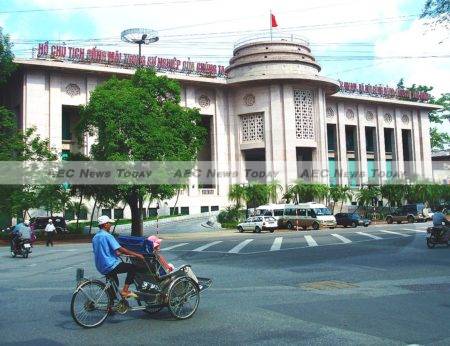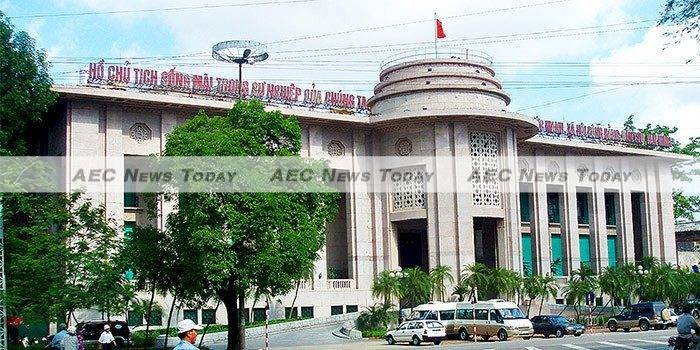As Vietnam begins reign-in red-tape and divest its extensive, state-owned enterprise (SOE) holdings, increasing attention is being focused on their corporate governance. A string of probes have uncovered an array of corruption and negligent activities, with the State Bank of Vietnam (SBV) the latest to have the corruption spotlight land on it.
Vietnamese authorities have expressed their concern over the inadequate supervision of the central bank, as well as the glacial implementation of anti-corruption measures.
In a tightly worded statement posted on the government’s website on September 2, the Government Inspectorate said that it had found sufficient evidence of negligence between 2010 and 2015 by SBV’s Banking Supervision Agency (BSA), which is tasked to oversee and examine credit providers.
‘Several credit providers did not meet the regulatory requirements, but SBV’s Supervision Agency failed to promptly detect and rectify the issue’ it reported, while also accusing the bank in being slow in publicising the properties and revenue of government officials. SBV Governor, Lê Minh Hưng, was called on to investigate.
Corruption Riddled Vietnam Banking Sector

The claims of negligence and mismanagement at the SBV came as the trial of 51 bankers charged with causing losses exceeding US$69 million resumed in Hanoi.
The bankers, former employees of Ocean Bank, partially owned by state-run energy company PetroVietnam, originally begun in February, but was adjourned due to a lack of evidence. In May 2015 the SBV took over Ocean Bank after it reported losses of $445 million and declared 50 per cent of its outstanding loans as bad debts.
Among those accused are Ocean Bank’s former chairman, Ha Van Tham, once one of Vietnam’s richest businessmen, and general manager, Nguyen Xuan Son, who are charged with embezzling $2.2 million and abuse of power in appropriating another $8.8 million. They are also charged with ‘breaking regulations on lending activities at credit institutions’ and ‘deliberately violating state regulations on economic management, causing serious consequences’.
According to prosecutors the pair approved a $23.5 million loan for Pham Cong Danh, former chairman of Vietnam Construction Bank (VCB), without receiving the required collateral.
On September 9 a Ho Chi Minh City court sentenced Pham and 36 former VCB employees to a total of 213 years jail for stealing more than $400 million – the largest amount ever pilfered from the scandal-wracked Vietnam banking sector. Pham was sentenced to 30 years jail.
In August police arrested an additional 16 people, including executives and employees of various banks and companies, accused of assisting Pham, while in July 2016 the former chairman of PetroVietnam was charged with malfeasance resulting in the loss of a $38 million investment in Ocean Bank.
Corruption Tracked to Highest Level of Vietnam Central Bank

Just days later 63-year-old Dang Thanh Binh, a SBV deputy governor from 2005 until 2014, was placed under house arrest before being charged with ‘dereliction of duty, causing serious consequences’ by the Ministry of Public Security (MPS). According to the MPS, Mr Dang is ‘accountable for massive losses’ at VCB.
In response to the September 2 announcement the SBV said that it has begun to implement a new framework for the supervision of the banking sector. The scheme to settle non-performing loans (NPL) and restructure credit institutions between 2016-2020 — approved in July — requires all credit institutions to arrange their own restructuring plans and submit them to relevant management agencies for approval.
However, in January Suiwah Dean-Leung, an honorary associate professor of economics at the Crawford School of Public Policy, cautioned that the ‘special bonds’ being issued by the Vietnam Asset Management Corporation (VAMC) effectively pumped new liquidity into insolvent banks.
Mr Dean-Leung warned that insolvent banks would be able to offload existing bad debts by ‘swapping’ it for ‘special bonds’ and then use those ‘special bonds’ to borrow from the SBV. In effect recapitalising insolvent banks.
Although obligated to buy back the debt, poorly governed banks, or those with ingrained corrupt practices, might never be in a position to, leaving the State to carry the loss, or setting off further banking failures. In effective, merely delaying the inevitable.
With a budget deficit of around 6 per cent and public debt hovering close to the statutory limit of 65 per cent of GDP, Mr Dean-Leung said an accelerated re-structuring of Vietnam SOEs would ‘go a long way towards resolving the non-performing loans (NPLs) in the banking system’, but cautioned that time was running out.
With recent court verdicts seeing death penalties dispensed — in February, Ha Noi People’s Court handed down two death penalties in the bankrupt state-owned firm Vinashin Ocean Shipping Ltd. (Vinashinlines) case – Vietnam appears to be ramping up its cleanup of SOEs.
In addition to the top-down approach adopted by the Government Inspectorate, Vietnam has also partnered with the World Bank to launch the Vietnam Anti-Corruption Initiative (VACI). Aimed at curbing corruption at the grassroots level by educating people on the role that they can play in detecting and reporting corruption, the programme is particularly important in a region where receiving kickbacks for favours — or for just getting someone to do their job — is seen as a normal part of life and the business process.
However, the recent announcement by the Government Inspectorate would appear to indicate that the Vietnam banking sector is still not rot free. How far this latest announcement will reverberate though the Vietnam banking sector is yet to be seen.
Update: This story was last updated at 06:01 on September 20, 2017:
A previous version of this story contained an incorrect feature image. It has been replaced.
Feature photo Gunawan Kartapranata
Related:
- Vietnam TV shows oil executive who Germany says was abducted (Channel NewsAsia)
- Vietnamese banking tycoon arrested in $400 million graft case (VnExpress)
- Lawmakers to mull tougher corruption law (Viet Nam News)
She commenced as an intern at AEC News Today and was appointed as a junior writer/ trainee journalist on April 2, 2018
Latest posts by Sreypov Men (see all)
- Myanmar morning news for July 24 – July 24, 2020
- Vietnam morning news for July 24 – July 24, 2020
- Malaysia morning news for July 24 – July 24, 2020
- Myanmar morning news for July 23 – July 23, 2020


